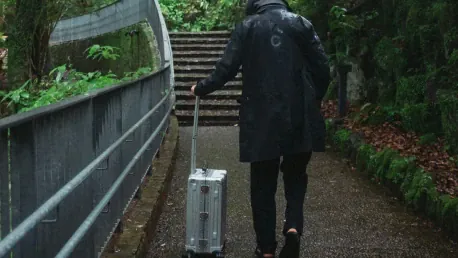With global business travel expected to reach $1.5 trillion by 2024, the industry is poised for a significant transformation driven by technological advancements and evolving work patterns. The resurgence of business travel is becoming increasingly evident, with professionals resuming in-person meetings and companies ramping up travel budgets. According to the World Travel & Tourism Council, the need for face-to-face engagement is spurring a strong recovery, surpassing pre-pandemic levels. This resurgence is shaping the business travel landscape in innovative ways, thanks to burgeoning tech solutions and new evolving travel behaviors.
Technological Innovations in Business Travel
A key trend is the emergence of technology-driven solutions that streamline unmanaged business travel. Employees, especially from smaller firms, often book their trips without stringent company oversight. This shift presents a plethora of opportunities for tech companies to develop platforms that integrate seamless booking solutions, expense tracking, and comprehensive travel data management. AI-powered travel agents have become crucial players in this space, not only expediting the booking process but also offering enhanced transparency for employers who need to monitor travel expenditures in real time.
The digital transformation of managed business travel is characterized by four major technological advancements. Firstly, AI-driven booking tools simplify the process, making it more efficient and user-friendly. Real-time hotel spending control is now possible with direct folio billing, which ensures that expenses are monitored and kept in check. Continuous rate monitoring allows businesses to adjust to the most economical options in real time, ensuring cost-effectiveness. Lastly, small-meeting technology has come to the forefront, catering to the needs of companies operating in remote or hybrid setups, ensuring that even the smallest business engagements are facilitated seamlessly and effectively.
Blending Business with Leisure Travel
Another significant trend is the growing intersection of business and leisure travel, known colloquially as “bleisure.” The rise of remote work has allowed employees the flexibility to extend their business trips, combining work commitments with leisure activities. This new dual-purpose travel behavior underscores the importance of long-stay properties within corporate travel plans, providing the needed amenities for both work and relaxation. Travel tools increasingly incorporate personal travel histories, enabling travelers to enjoy an enhanced experience by blending professional responsibilities with leisure pursuits, leaving them more rejuvenated and productive.
This trend of blurring business and leisure travel focuses not only on fostering work-life balance but also on enriching the overall travel experience. Employers are recognizing the benefits of such flexibility, as energized and satisfied employees tend to perform better. This blending of purposes suggests that business travel tools and platforms need to evolve to support travelers in enjoying their trips more fully, with features that cater to holistic travel experiences. Incorporating leisure elements into business trips is becoming a pivotal aspect of the future business travel landscape, fostering a more dynamic and satisfying approach to travel.
A Dynamic Future for Business Travel
As global business travel is anticipated to soar to $1.5 trillion by 2024, the industry is on the brink of a major transformation fueled by technological innovations and changing work patterns. The revival of business travel is becoming increasingly apparent, with professionals resuming face-to-face meetings and corporations increasing their travel expenditures. According to the World Travel & Tourism Council, the demand for in-person interactions is driving a robust recovery, even exceeding pre-pandemic figures. This resurgence is crafting the future of business travel in creative ways, thanks to rapidly advancing tech solutions and shifting travel behavior.
Enhanced digital tools like virtual booking assistants, AI-driven travel management, and contactless technologies are simplifying the travel experience, making it smoother and more efficient. Moreover, remote work trends are leading to flexible travel schedules, blending business with leisure. As the industry adapts to these developments, the landscape of business travel is set to become more dynamic and resilient, ensuring that it meets the needs of modern professionals while fostering global economic growth.









